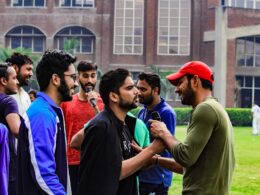Amid ongoing diplomatic tensions, the Indian government has officially allowed its men’s cricket team to compete in the 2025 Asia Cup, confirming showdowns with Pakistan on September 14 and potentially again on September 21 in Dubai. The announcement follows a sweeping new policy from the Ministry of Youth Affairs and Sports (MYAS), which bars any bilateral sporting events between India and Pakistan but leaves room for multilateral contests like the Asia Cup.
The Asia Cup, set to begin September 9 in the UAE, is expected to draw massive attention thanks to these high-voltage India vs Pakistan clashes. A final could see the archrivals face off again on September 29. “We will not prevent the Indian cricket team from participating in the Asia Cup as it is a multilateral event,” a senior ministry official told reporters. However, the line remains firm: “In terms of bilateral sports, Indian teams will not compete in Pakistan, nor will Pakistani teams be permitted to play in India.”
Policy Tied to Olympics Bid and Recent Tensions
The updated policy comes just months after Operation Sindoor and amid speculation about India’s bid for the 2036 Olympics. Both the Ministry of Home Affairs and Ministry of External Affairs were consulted before giving cricket’s governing body the go-ahead. The ministry says this approach aligns with India’s broader diplomatic stance toward Pakistan—no direct sports exchanges, but honoring obligations under international sporting bodies like the Olympic Charter.
This balancing act was underscored by a related episode: Pakistan’s hockey team was granted visas for the Men’s Hockey Asia Cup scheduled later this month in Bihar, but ultimately pulled out of the tournament. In contrast, Indian teams are still permitted to play Pakistan in global or continental competitions hosted elsewhere, with each case supposedly reviewed individually if travel to Pakistan is required.
Women’s Teams Also Set for Face-Off
It’s not just the men making headlines—India’s women’s cricket team will meet their Pakistani counterparts at the Women’s World Cup in Colombo on October 6. Again, these matches are allowed under the new guidelines because they’re multilateral events.
For fans, officials, and athletes alike, it’s a delicate dance between politics and sport. But one thing is certain: come mid-September, all eyes will be glued to Dubai as two of cricket’s fiercest rivals write another chapter—on neutral ground—under a new diplomatic order.










